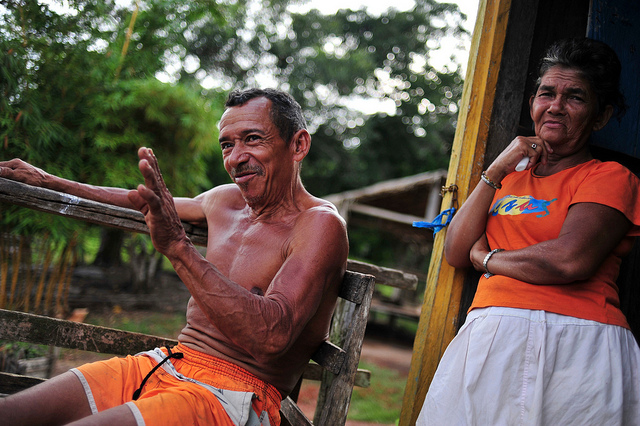On September 2nd, 2015 Focali researchers organized a workshop about Building partnerships with forest communities at the Lund University Centre for Sustainability Studies (LUCSUS). The idea was born out of research experience with forest communities and the observation that for most part, forest communities are often only the receivers of, for example, money or in-kind benefits in order to protect forest resources.
Very seldom forest communities are treated as true partners in project development together with organizations, companies or the government. During the workshop, we wanted to share research projects and findings on community forest conservation and discuss questions regarding the participation of communities in conservation projects and the like. A number of representatives from science, private companies, NGOs and Swedish government agencies came together to share research findings and work on how to establish partnerships with forest communities.
The workshop’s keynote speaker Wain Collen, Founder of Plan Junto from Ecuador, presented how his organization works with and for communities in the Ecuadorian Amazon. He focused on the need to respond to local economic priorities when working with communities. First and foremost, communities need to be the owners and drive projects that concern their land and resources. Wain Collen pointed out the following key principles for success in building partnerships with communities:
- A long-term vision to build working rules and strengthen capacities of local institutions is instrumental for success
- One must be willing to experiment, evaluate, learn and adapt.
- Enabling policy conditions must be in place and most likely a blend of both top-down and bottom-up approaches would work out well.
- A continuous support system is required.
- Effective self-regulation by organizations and communities themselves should be strived for.
Overall, Wain Collen underlined that there is an increasing interest in the topic around the world. Public, private and NGO actors are interested in establishing enterprises and contracts with local communities to reverse deforestation and forest degradation through alternative livelihood generation and sustainable forest management. Yet, there are concerns among academics as well as practitioners that these attempts will not provide a long-term solution, but rather repeat the mistakes of the past, when short lived projects of all sorts were brought to communities with no major lasting positive effect.
Some of the questions we actively debated during the workshop were about the 1) importance of partnerships, 2) the criteria that define a successful community partnership, 3) the challenges to build such partnerships, 5) the key principles and mechanisms to help overcome these challenges and finally, 6) how to better integrate research and research findings into on the ground practice.
With these questions in mind, we not only wanted to highlight the importance to reflect and discuss how to effectively work together with communities that use or own forestland, but also to provide some input on how to achieve this. This is particularly relevant today because there is an increasing number of global initiatives and policy instruments to protect remaining forest areas from deforestation and forest degradation.
